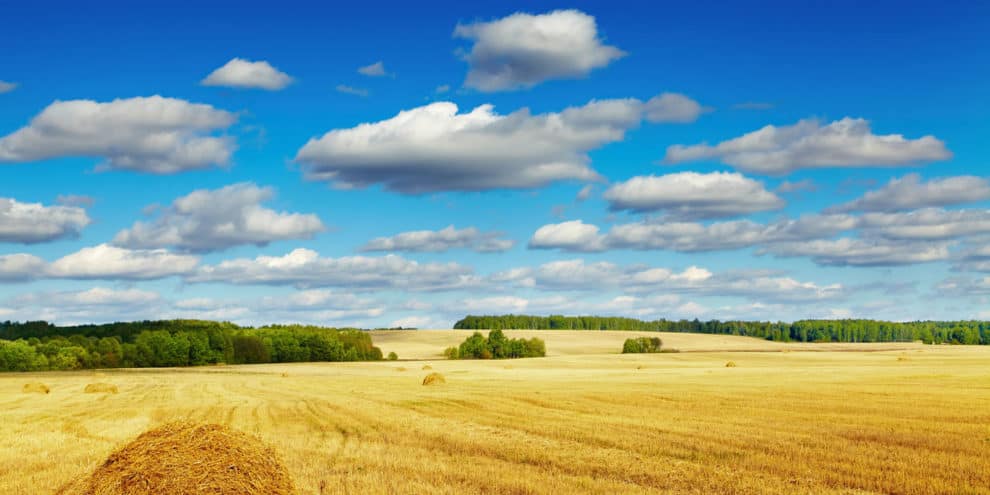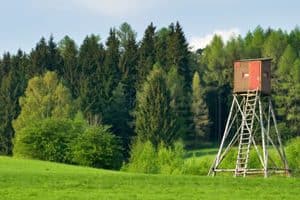There has been a lot of buzz lately about the land market. Parts of Iowa have experienced skyrocketing values in cropland; recreational land markets are stagnant and disturbingly low values have been seen in development land all across the nation. Even the overlooked sector of farmland received some major press over the last couple of months after the Annual Land Values report by the USDA was released. So where does all of this leave the average farmer or farmland investor?
The housing market crash made it seem that all markets including land had been wiped out. In reality though, most land, specifically agricultural farmland has continued at its historical slow and steady pace. The breadbasket of America where most farming and the bulk of farmland transactions take place is known as the Heart of America. In fact the Great Plains includes the precise geographical center of the United States located in Smith County, Kansas which literally puts farmland values right in “The Middle Ground”.
Much of the Great Plains States (generally considered Kansas, Nebraska, North Dakota and South Dakota) have seen steady increases in land values over the last few years but very few areas experienced double digit growth in the agricultural sectors. In fact the Plains states actually were the reason for the average value of US farmland growing 1.4% from 2009 according to the United States Department of Agriculture. So how do you define going up in value for land? Typically, land prices are quoted in per acre prices on farmland and pasture. So if you are looking at $1000 an acre vs. the new increased value then it is $1014 an acre. While increases in value are certainly newsworthy I am not sure if that constitutes a land rush.
It is true that demand for farmland has remained solid especially from existing farmers looking to expand. This is precisely why the markets have held firm because farmland is currently a scarce commodity as most producers are keeping their holdings. Therefore, when business news experts report that you should rush out and buy land and then you get out there and do not find much prime land available, you will know why.
Recreational, hunting and small acreages may flood the regular listing outlets like the local Multiple Listing Service (MLS) but top quality farmland most likely will not ever see the listing service. Invest some time in researching the areas you might want to consider and then start networking with local farm credit lenders and a local land expert. Most land is sold to neighboring farm operations and not big institutional investors as some of the news stories may have you believe.
Land will always have a demand because we have a finite amount and that inherently keeps the risk lower than most investment options. Rural farmland of even average quality can provide a consistent income on a property and maybe even provide you some recreational value as well during your ownership. If you want to avoid the highs and lows and stay in the middle ground, then consider farmland.
This content may not be used or reproduced in any manner whatsoever, in part or in whole, without written permission of LANDTHINK. Use of this content without permission is a violation of federal copyright law. The articles, posts, comments, opinions and information provided by LANDTHINK are for informational and research purposes only and DOES NOT substitute or coincide with the advice of an attorney, accountant, real estate broker or any other licensed real estate professional. LANDTHINK strongly advises visitors and readers to seek their own professional guidance and advice related to buying, investing in or selling real estate.









Marisa, great article. Thanks for contributing. Hopefully this will be the first of many for you. We need to know more about the land market in the “Heartland” down here in the deep South.
Johnathan,
Thank you for the comments. Look forward to keeping up on the south market from you as well. Best Wishes.
Hi Marisa, Great article and keep sharing your pation for Land. Come join the Realtors Land Institute…You would really enjoy our small group of “Dirt Dogs”.
http://www.rliland.com
Lou–Thanks for the comments. I am indeed a member of RLI.